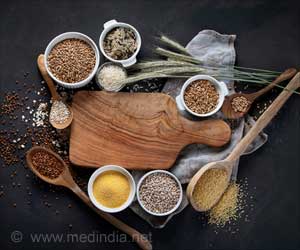Stem cell research and therapy in India, which is in its infancy demands a lot of funding to grow further, said N.K.Ganguly, Chief, Indian Council of Medical Research (ICMR).//
Delivering the 10th Sir Ganga Ram Oration on 'Challenges in stem cell research in India', Ganguly said there was huge scope in the country for such research.'There is a huge scope but what we need is more public-private partnerships, more funding and a regulatory framework for ethical practice,' Ganguly told the gathering late Thursday evening.
Stem cell research dated back to the 1930s and there has been tremendous progress in the field in Britain, Japan, Australia and the US, he noted.
'While in some cases Indian medical laboratories are not up to the standard, in some other cases the practice needs to be more ethical,' Ganguly said.
'Once we achieve success, around 58 million cardiovascular disease patients and 10 million cancer patients, among others, can benefit from it.'
Ganguly said there were some 18 institutes, including the All India Institute of Medical Sciences, Indian Institute of Sciences and Reliance Life Sciences that were doing stem cell research in India.
Advertisement




